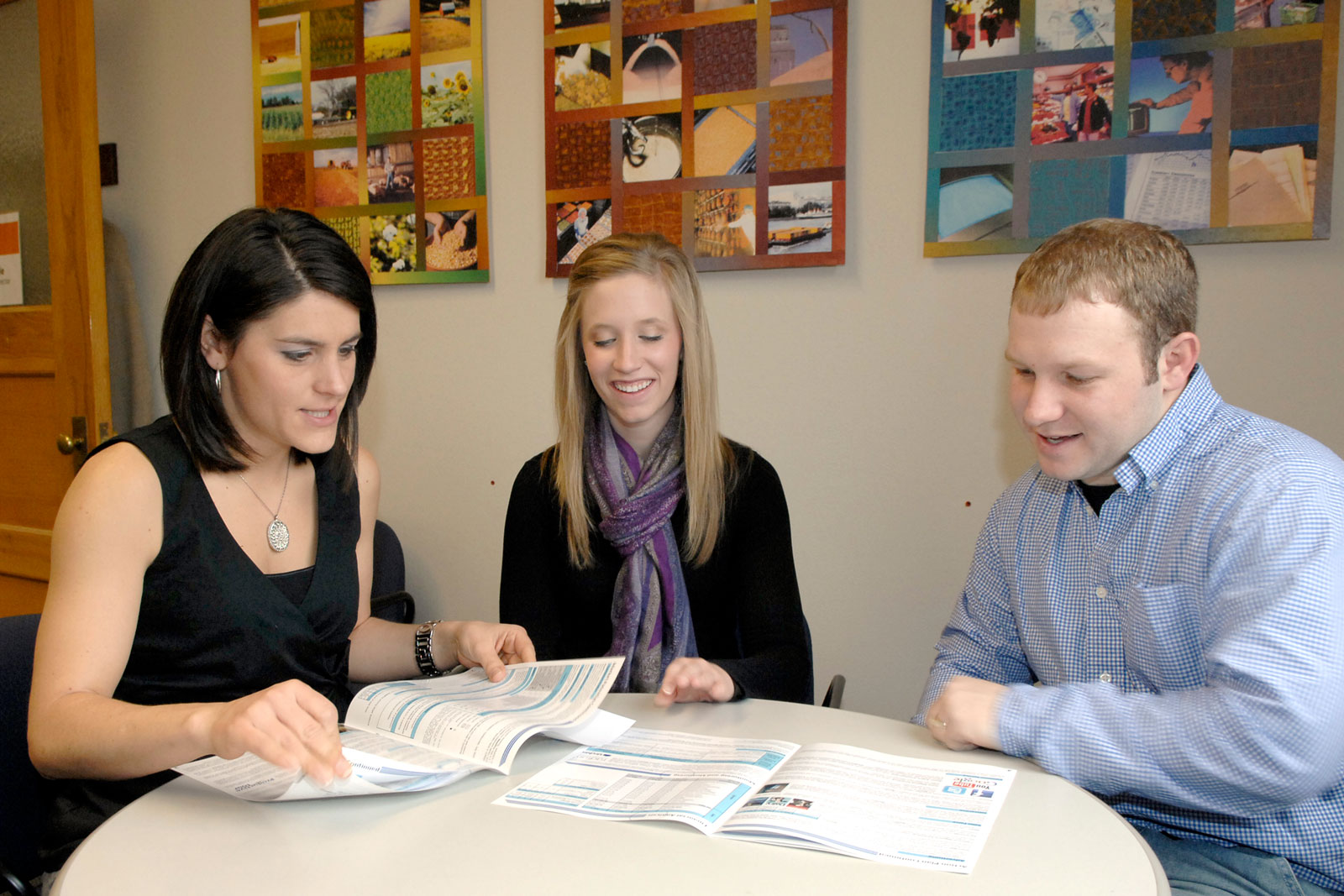
Getting A Jump On Starting Up
As home to the Agricultural Entrepreneurship Initiative, Iowa State was the first university in the nation to have such a program fostering agricultural business development among students.
“Entrepreneurship is the fastest growing segment of higher education,” says Kevin Kimle, director of the initiative and Bruce Rastetter Chair in Agricultural Entrepreneurship. “Donor, administration and faculty support is really important, but the growth in entrepreneurship education
at universities like Iowa State is ultimately driven by the interest of the students.”
The initiative was established in 2005, by a $1.6 million gift from Roger (’80 agricultural business) and Connie Underwood, of the Ames-based company Becker Underwood.
“Iowa State’s entrepreneurship classes can help show the curious student if he or she is an entrepreneur that should strike out on their own, or an entrepreneur that should work inside someone else’s organization,”
says Roger Underwood. “Both types of entrepreneurs can deliver fresh value by thinking smarter, acting faster and out inventing or out maneuvering others.”(He shares more thoughts on entrepreneurship in a Q&A session on page 18.)
Kimle and Stacey Noe are at the helm of the Agricultural Entrepreneurship Initiative. Noe coordinates the efforts of the initiative, assists with advising students nand helps students design entrepreneurial experiences to meet their needs.
By the Books
Entrepreneurial education isn’t necessarily done by the book, but formal classroom education helps build core competencies of the entrepreneurial process and business management.
In an economics course, “Entrepreneurship in Agriculture,” there is no textbook. Students use case studies to explore the entrepreneurial process and how to develop their own business plans. At the conclusion of the course, student teams present their ideas to a panel of experts and the top three teams win a monetary prize.
An experimental course in small business management exposes students to entrepreneurial ideas early in their careers. Also largely based on case studies, it covers management skills and business development.
Entrepreneurial issues are integrated into several courses across the college’s curriculum with special emphasis in Introduction to Agronomy (see page 4), Agricultural Selling and Farm Business Management. The college is also offering a new experimental course on farm appraisals that includes entrepreneurial concepts.
Students who desire official recognition of their efforts can declare a minor in Entrepreneurial Studies. The minor requires entrepreneurship and related courses and experiential credits earned working alongside successful entrepreneurs. Noe and Kimle advise those students and connect them with entrepreneurs to earn their experiential credits.
“Good connections are those with alumni that have passion and are willing to share and give back. We identify entrepreneurs through online searches, conferences and tradeshows and through the alumni association database,” Noe says. “We look for entrepreneurs from a variety of areas, and welcome interested alumni to contact us.”
The Agricultural Entrepreneurship Initiative also coordinates study abroad programs and domestic travel with an emphasis on entrepreneurship. Seventy students have participated in trips to China, Germany, Greece and California. New Zealand, Ireland and other U.S. locations are slated for future trips.
Real-World Experience
Michael Koenig, senior in agricultural education, has been selected for the initiative’s recently launched Student Incubator program. He says the program will allow him to take his ideas for launching a mobile application to identify weeds, insects and diseases to the next level.
The Student Incubator helps students develop a business plan for revenue-generating or investment-ready firms by accelerating the process of idea creation, business development and planning. The program provides coaching, mentoring, educational programming, access to subject matter experts and investors and other resources necessary for early-stage venture development.
“I first developed the concept for my business in the ‘Entrepreneurship in Agriculture’ class last semester,” says Koenig. “I am really excited to continue to develop the business with all the support I’m receiving.”
Koenig also was a member of the winning team at the initiative’s 2011 Ag Innovation and Value Creation Competition. Fourteen student teams competed in the annual event, which challenges students to create a product and develop marketing ideas. This year students were charged with finding a new use for optical sensing technology. Koenig and the winning team created a product called SmartChute using the technology to work with cattle. Faculty and entrepreneurs evaluate the teams based on creativity, innovation and value creation. Teams earn prizes based on their performance. Students can win cash, study abroad scholarships, dinner with notable ag business leaders and Iowa State versus Iowa football tickets.
“These opportunities are designed to be challenging and mind-opening. We give students a chance to apply the knowledge they’ve gained in the classroom to real-life situations in the agriculture industry,” Noe says.
The Agricultural Entrepreneurship Initiative will continue to expand entrepreneurial experiences for undergraduatesboth in and outside the classroom.




